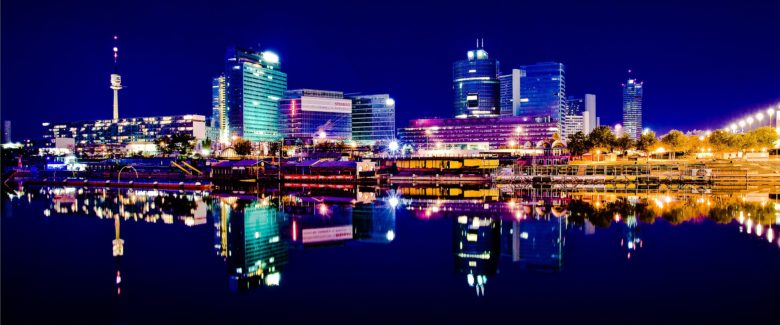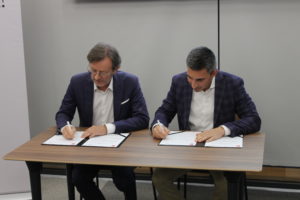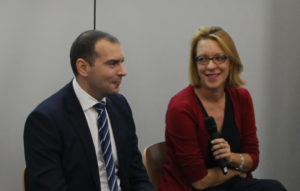5 Tips On Launching Operations In Vienna From Startup Evrotrust and Advertising Agency Prodesign

At the beginning of October, Sofia and Vienna agreed to continue their city-to-city partnership that was started last year. News like this is usually published in the small columns on the edge of newspaper pages and considered as PR releases.
“Unlike the function of many memorandums, this one is not just a piece of decoration to ornament our offices, it’s a working paper,” joked Gerhard Hirczi, Managing Director of Vienna Business Agency, right before signing the new city-to-city agreement with Vladimir Danailov from Sofia Investment Agency. Indeed, Sofia is the first city in Eastern Europe with which the Austrian capital partners on this level.

It’s been around a year since the two business agencies started working together on bridging the companies and the ecosystems. Exchanging delegations of selected companies, meetings to exchange know-how on current projects (like the e-scooter regulations – ed.n.), networking events that create business opportunities – this is the object of memorandums like this. “Such cooperations are very important. At the end of the day, this is not about Sofia, Vienna, Berlin or Barcelona. It’s about Europe,” stated Hirczi, adding that cities are just the natural hub of innovation.
Yet, the real validation of such city-to-city agreements is when a company actually manages to set a foot on the respective partner market. In this case, two such examples are the digital identity startup Evrotrust and the advertising agency ProDesign. Both companies have opened up their offices in Vienna within the past twelve months, and know what the process of entering the Austrian market looks like. We asked them to share some experience and pieces of advice.
How and why Vienna
To dare the step to a new and more advanced market, where the competition is also bigger, is the first challenge. Evrotrust is a tech startup specialized in remote identification and signing, and works with corporates and governmental institutions that need to adopt their solution, and offer it to their clients. They decided to try their luck in Austria, despite the fact that there are already established decades-old players in the same space like A-Trust, a joint venture of the Austrian Federal Economic Chamber, Raiffeisen Informationstechnik, Raiffeisen Zentralbank, and recently the local e-trust provider XiTrust. And they actually see the presence of the competition as an advantage.
“Having the basic infrastructure built and knowing there are companies in your domain, means that you just need to see what you can do better. Especially in the technology business, confidence is an important ingredient,” explains Tsanka Taneva, part of the business development team of Evrotrust.

For Marian Naydenov, the CEO of Prodesign, it was a bit different. He was not trying to beat any competitors, but rather build an international company coming from Bulgaria. “The EU was created to have an open market to trade goods and ideas. I never thought I had to be better than all our competitors, it’s about the strategy we have as a business and the goal to grow sustainable. We want to be part of the wave of Bulgarian brands that expand internationally. And Bulgaria is already well known in Austria, and Western Europe, as a country with solid tech and digital expertise. But what we don’t want to do is just use the pricing as competitive advantage and outsource everything to Bulgaria. We have a local office in Vienna and people who work there. The mix between Bulgarian and Austrian team members creates a great spirit in the company.
On a more practical level: 5 things to be prepared for
Besides confidence and vision, there’s also the paperwork and the practical side of setting up an office and operations. How long does it take? Who should you know? Who should you recruit? And what is the business culture to have in mind?
It took Evrotrust three months to set up the company in Vienna, and for Prodesign it was much quicker. “It took us 30 days to register the company and we received a lot of support from Advantage Austria and the Vienna Business Agency. Having a local lawyer was also of great importance to us, as we were explained all the processes,” says Naydenov and advises companies planning to launch to Vienna to contact the business agency.
Recruiting locally is the second piece of advice that Taneva and Naydenov agree on. Both companies hired local people, who already know the business landscape, the language (in a direct and figurative sense), and had the right contact networks. “ If you go to a new market this will spare you a lot of time. You need their mindset,” says Taneva.
To become part of the respective ecosystem of companies in a domain is another critical element of infiltrating into a new market. Evrotrust, for example, was introduced by Vienna Business Agency to different events where they could pitch their product in front of both potential clients and other startups. They even ended up going through the three-month-long acceleration program – the Vienna-based multi-corporate WeXelerate.
Prodesign, whose CEO admits there are further efforts needed to become part of the advertisers’ ecosystem, decided to start differently. They created their own advertising campaign, and surprisingly for them, it worked so well that the company was at break-even in the third month.
This is probably more an exception than a rule, however. For Taneva, from Evrotrust, the patience, the understanding, and the time it takes to get traction on a completely new market, is very important. “Be prepared that the speed of business communication and project launching in Bulgaria is much higher, don’t be too pushy with your Austrian clients. They plan a lot in advance,” gives advice also Marian Naidenov.




























